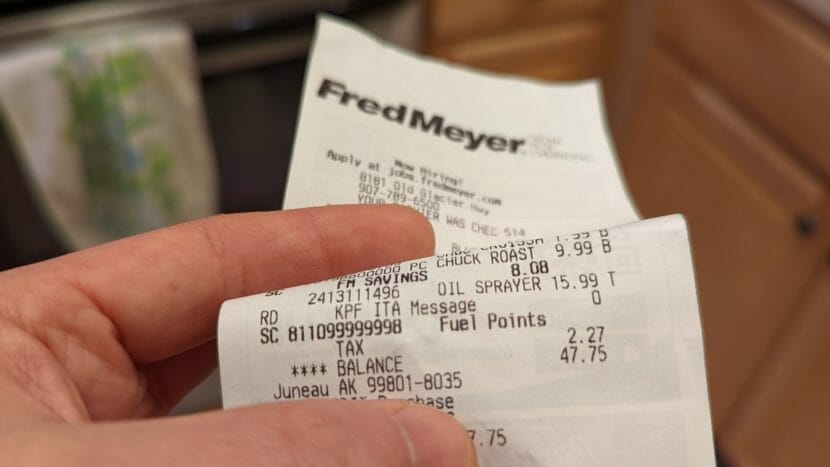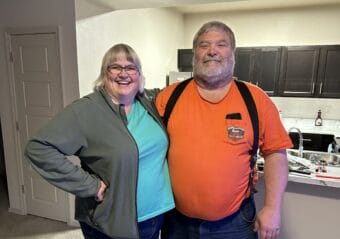
Juneau voters may not get the final say this October on a plan to stop taxing sales of food.
In committee last week, the Juneau Assembly set aside plans to ask residents a ballot question this fall to raise the sales tax rate. If voters authorized it, basic groceries would become exempt from the city’s sales tax, and the city’s overall sales tax revenue would be mostly intact.
But the Assembly is taking the discussion in a new direction. It now wants to put one or more advisory questions on the ballot that pairs the tax break with different tax increases.
Advisory questions are not binding — they are a way for elected officials to take the temperature of voters on an issue. Voters would still have to be asked a regular ballot question to actually raise the sales tax rate. However, the Assembly can act on its own to change the property tax rate during its annual budget process.
The Assembly is considering three separate ideas to recoup revenue:
- Raising the year-round sales tax rate to 5.5%;
- Raising the sales tax rate to 6% from April through September; and
- Raising the property tax rate by 1 mill, which would effectively increase most property tax bills by 9.5%.
The tax burden would shift differently under each scenario. Under all three, lower income households are expected to save more than they would spend in new taxes. With a seasonal sales tax, visitors pick up much of the tab. With the property tax, only businesses and the community’s wealthiest property owners would pay more.
City Finance Director Jeff Rogers shared a new analysis of how the property tax option would play out for different households. By his estimates, the food tax break and property tax increase would cancel each other out for high earning households with property worth around $500,000 to $600,000.
“The only way that I can manipulate the table in such a way that it costs anybody more, is to presume that somebody has a very high property value,” Rogers said. “So obviously, once you get above 7, 8, $900,000? The property value is probably not one’s principal residence. It starts to be holdings of commercial properties or vacant land or whatever. So only in those categories does the math indicate to me that somebody comes out worse with tax-free food and a 1 mill increase.”
A March survey showed the property tax option was very unpopular in the local business community. However, even some of the Assembly’s most pro-business members found some appeal in the property tax after reviewing Rogers’ models.
“So the very families that we’re trying to benefit have a higher savings per year by adding the mill rate,” said Assembly member and businessman Wade Bryson. “So I would be in strong favor of the property tax on the advisory vote. Because if the community said to us, ‘We’re OK paying a little bit more for property tax to remove sales tax,’ I mean, that’s a solution and approval from the community.”
In future meetings, the Assembly plans to sort out which of the three advisory questions to send to voters. To get a question onto the local election ballot in October, the Assembly must pass an ordinance by Aug. 4.



